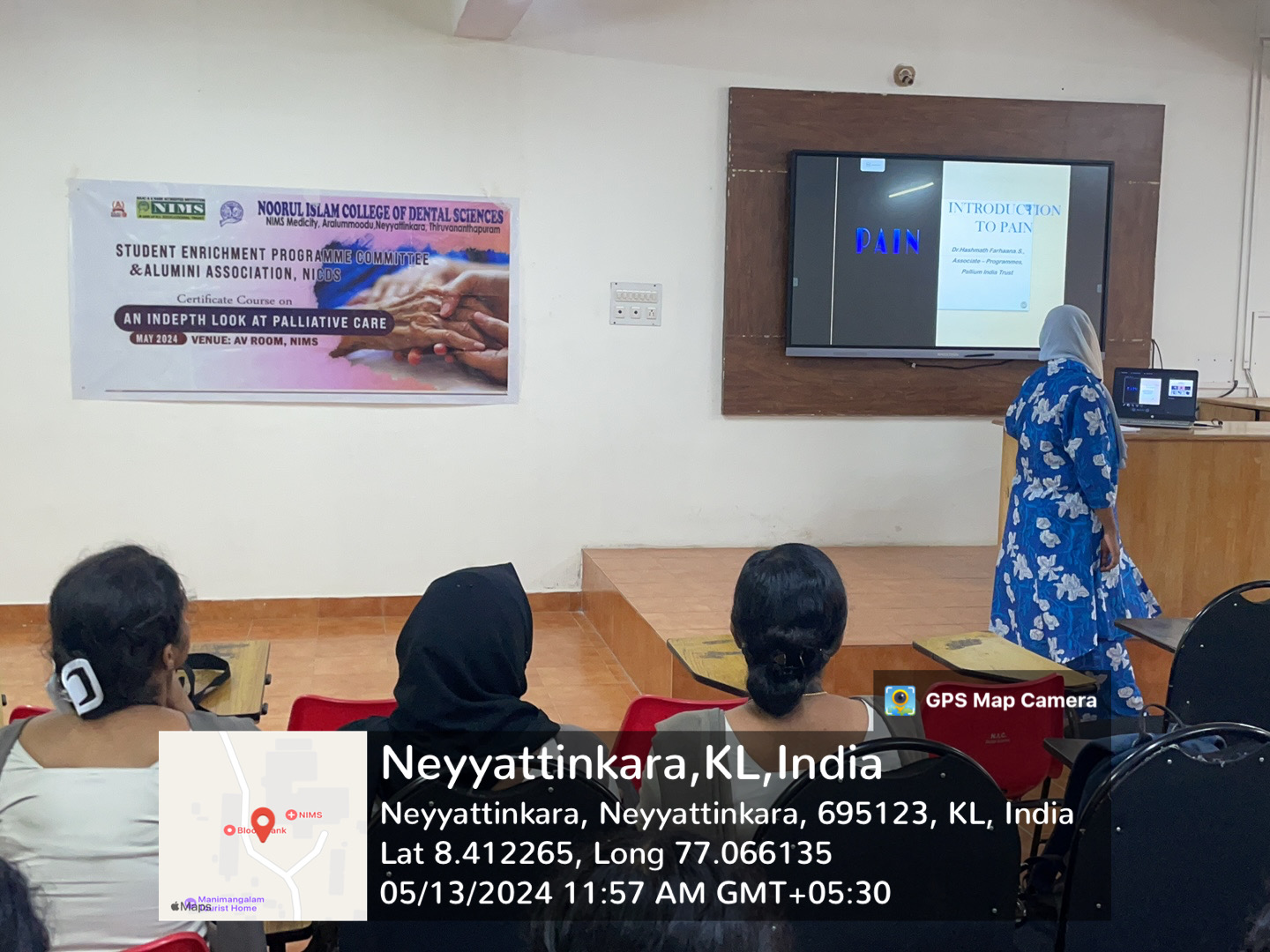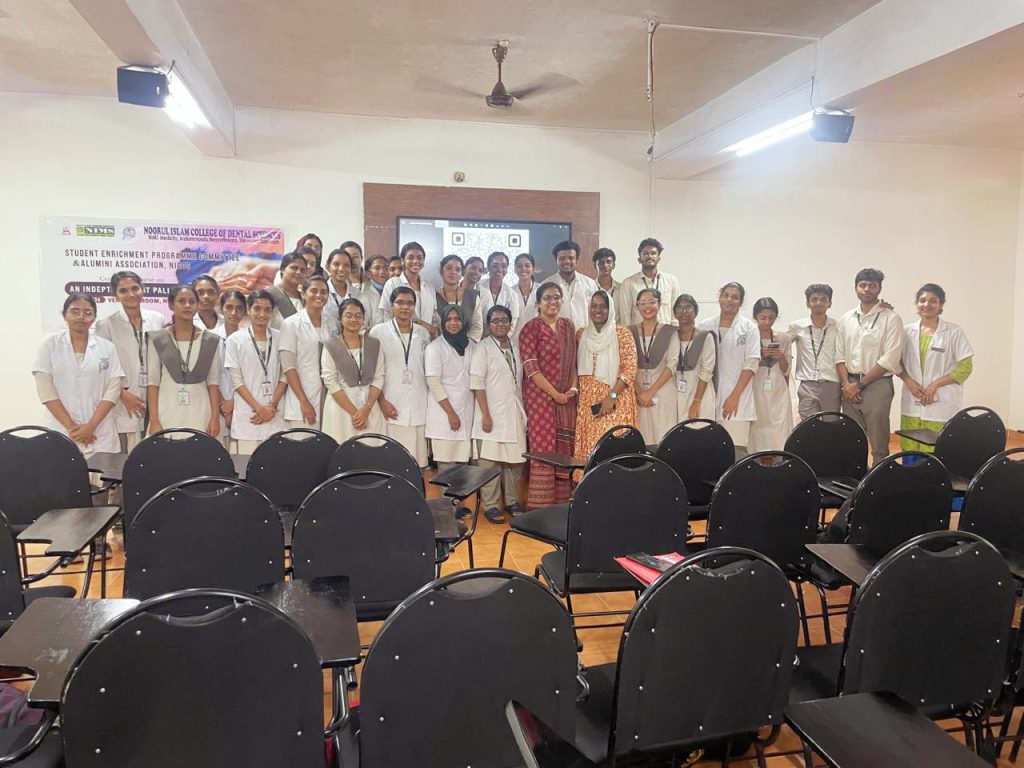Lessons from classrooms – When students make teachers think

Trivandrum Institute of Palliative Sciences (TIPS) conducts on-site training programs for undergraduate students at various medical and dental colleges. In May, we conducted a certificate course on “An In-Depth Look at Palliative Care” at Noorul Islam College of Dental Sciences (NICDS) at NIMS Medicity, Neyyatinkara, Thiruvananthapuram, in association with the Student Enrichment Programme Committee and the Alumni Association of NICDS. The 5-day onsite training program commenced on May 10, 2024
Sr. Sheeba, Section Head, Clinical Training at TIPS, Pallium India led Introduction to Palliative Care session. Dr. Hashmath Farhaana, Associate – Programmes; Ms. Anusree, psychologist; and Sr. Sheeba took sessions on pain, end-of-life care, communication, and nursing issues respectively. 37 participants from the Final Year BDS (Bachelor of Dental Sciences) attended the program.
Dr.Hashmath Farhaana, Associate-Programmes, Department of Education & Skill Building, writes:
During my session on end-of-life care, I asked all of them, “How would you like to die? – At home with your loved ones beside you, or in the hospital?”
Most students said that they want to die at home with their loved ones near them. There was one student, however, who stood up and said that he wanted to die in a hospital setting. When I asked what made him say that, he said, “It is because I believe that doctors and nurses will take care of me really well when I am at the end of my life and suffering.” I could see in his eyes the faith he had in healthcare providers.
We must understand that there are many people in the world living with serious health-related suffering (SHS) who believe that we healthcare providers will give them a good quality of life. That we will manage their suffering effectively, across all domains – physical, emotional, social, and spiritual. That our care will ensure a peaceful death free of suffering.
Are we worthy of that faith? Let us reflect on this, and work towards being worthy.
Meanwhile, let us never forget:
“The duty of every healthcare provider is to mitigate suffering. To cure sometimes, to relieve often, and to comfort always. There exists no exception to this principle.” (ICMR 2018)”







